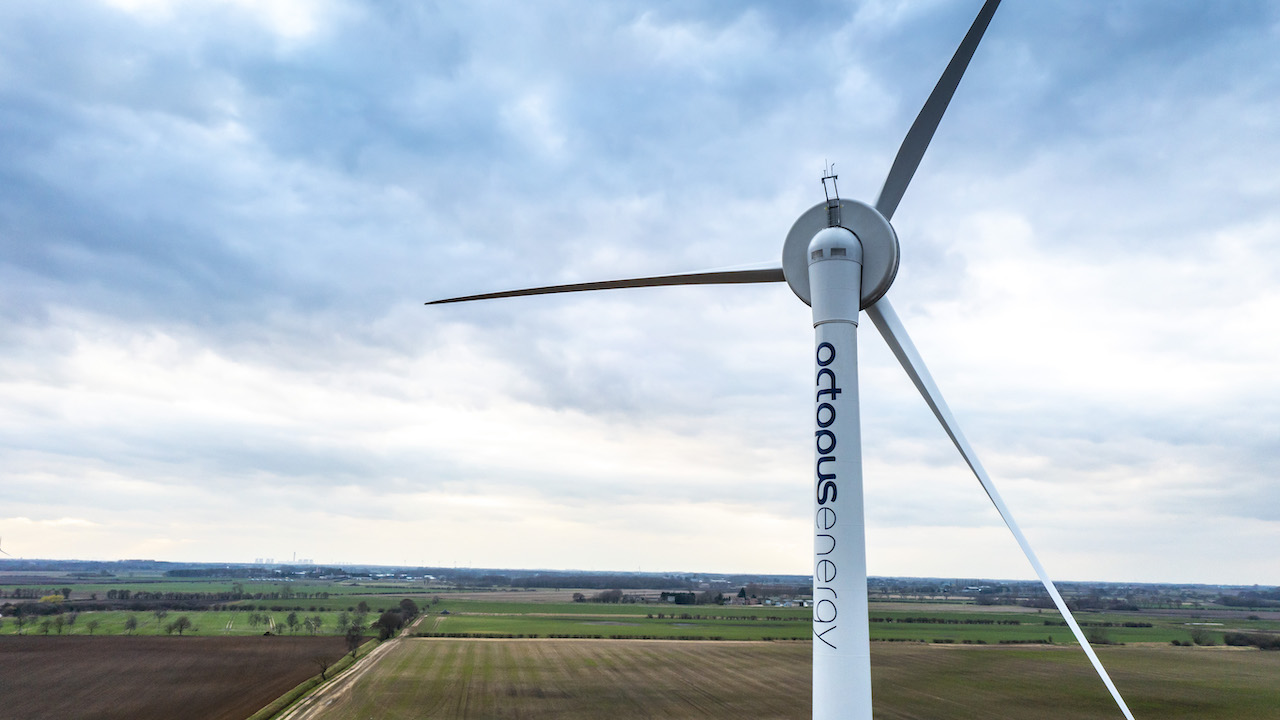Clean electricity halved in price would persuade nearly nine out of ten British households to have an onshore wind turbine located in their postcode, consumer research for Octopus claims.
The generator-retailer commissioned pollsters Opinion Matters to question a sample – described as ‘representative’ – of 2,000 UK bill payers in the seven days up to 23 March.
To a question summarised as “how much would 50% off your energy bills induce you to welcome a wind turbine into your postcode?”, 87% of respondents said it would, aggregated across three degrees of positive support. (See image).

Via its Octopus Fan Club, the supplier has been actively promoting tariffs for consumers close to turbines. Already trialling two turbine-linked schemes at Market Weighton in Yorkshire and in Caerphilly, it plans upwards of 30 more by 2024.
Octopus’ head of generation Zoisa North-Bond claimed that as the Fan Club had persuaded ‘thousands of communities up and down the country to get in touch with us to build wind turbines near them”.
In parallel to commercially-sourced clean electricity, sale to local catchments of co-operatively-controlled power is the regulatory freedom sought by Britain’s 400 or so active energy co-ops and community benefit societies.
At Westminster, the Local Electricity Bill has amassed support from over 300 MPs of all parties. Following two debates on the issue since 2020, exploratory talks continue between campaigners Power for People and Ofgem.
As a third variety of incentive, commercial developers are offering small ownership stakes to communities who consent to onshore turbines.
Squids in, Nimbys out
“The concept of NIMBYism ( ‘not-in-my-back-yard’ objections ) has rapidly changed”, Octopus’ North-Bond added. “We’ve been blown away by the positive feedback towards local wind turbines if energy can be supplied at cheaper rates.
“We now need the right can-do mindset to build and connect wind turbines where people want them, quicker than ever before.”
David Cameron bowed in 2016 to NIMBYs in England’s overwhelmingly Conservative shires, when he removed earlier green incentives for new onshore developments, at the same time granting objectors more powers to block wind farms through England’s notoriously restrictive planning systems. Leader of the anti-wind objectors Chris Heaton-Harris is now Johnson’s chief whip.
A proposed revival of onshore wind developments in England & Wales on new grounds of ‘energy security’ is reportedly splitting Johnson’s cabinet, amid internal Conservative turmoil over fracking, oil exploration, nuclear and even coal.
Consumers’ supposed enthusiasm for tariffs sensitive to the time of day are an insight revealed in a less structured, second strand of consumer research which Octopus is running directly from its website.
Four out of five respondents reported via Octopus’ website that they would switch power-intensive chores such as laundry to new times such as overnight, if time-sensitive tariffs gave them an incentive.




